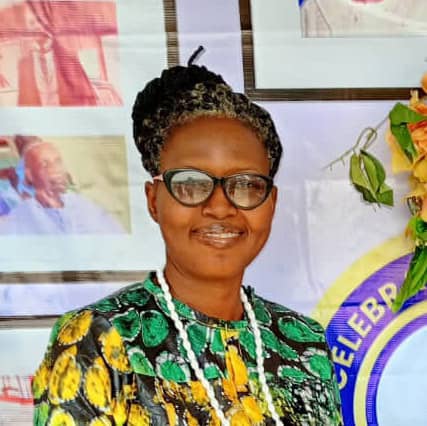By Kola Olaniyan, _Ph.D_
Kówódé, an eponymous dramatic form,published by Kraftgriots few weeks ago, explores new dimension to rape and girl child molestation in modern day Nigeria. From the interactions among the characters and a flashback to an era in the country’s sociopolitical life, we understand that the reason(s) given for incidents of rape and sexual molestation of the opposite gender by men have advanced from untamed libidinal desire or feminine attractions to paedophilic instinct vis-a-vis ritual purposes precipitated by the crazy pursuit of wealth. Kówódé’s adventure to seek way out of his penury reveals that “Women are the best materials in rituals if you want the best results. Virgin for money, mothers for awure, pregnant ones for positions of power.” (Priest, page 12)
Here, Lara Owoeye has not only challenged men heinous crime against women but also the cosmics in their discrimination against this special gender. Do we say the gods also subscribe to the patriarchal conspiracy against women’s existence to the extent that nothing else placates them better than the female blood! This is a question only the gods and their custodians can answer in a society drifting towards plutomaniac and loss of value for human lives.
Through Stella, a rape victim in the play, Lara Owoeye also shares another perspective into the understanding of the reasons behind this nefarious act as the character suffers rape from a close relation (her mother’s nephew) who takes pleasure in defiling minors and does same to Stella at age 12. This paedophilia instance, though suffered by the character in times past, still endures and it is further reinforced by the ravaging money ritual practices in recent time.
From Stella’s hurtful experience, the playwright gives a vivid picture of the psychological and health hazards often suffered by a rape victim. A victim of rape faces threat from the culprit and suffers in silence to avoid being stigmatisatised by others: parents, uncles, friends, law enforcement agencies etc. Some like Stella, may suffer barrenness resulting from the termination of unwanted pregnancy that stemmed from rape incident. The trauma is so severe that Stella affirms that “it is a lifetime pain that is worse than murder”.
Centering on serious matters of money ritual, sexual assault and religious perversion, the play is presented in eight movements titled ‘Situation’. All through the situations, the play sustains the readers in a high suspense as the the protagonist, Kówódé, battles with his inner conflict and the dilemma of getting a virgin to sleep with as part of the ritual process required by Priest to get him wealthy. The tempo of the suspense keeps rising as the protagonist’s friend, Fẹranmi, his alter ego, keeps pointing out various means by which he can get a virgin for the required ritual. Seeing his wife leading an agitation against rape and sexual assault against female gender, he is caught in the web of great confusion and mental conflicts.
Seeking solution to this entanglement from a church does not help matter. Kówódé eventually surrenders to the propelling external voices and nemesis consequently catches up with him in his attempt to rape his daughter, Tayo, for money ritual. At the end, he runs naked in the street in his state if mental disorder.
Apart from the predominant suspense in the play, the playwright has successfully explores other dramatic devices and spectacles like songs, dance, dramatic monologue and soliloque. The use of religious songs particularly reinforces such innuendos that have crept into religious worship and faith in support for ill-gotten wealth in the modern society
No doubt, Kówódé is a story of an impatient man who chooses divination against hard work in a society driven by the mad pursuit of quick money. The play particularly underscores another feminist statement on the need for the female gender to come together and join forces against these novel elements that want to turn the female folks to “endangered species” in a society that is meant for all to flourish within their capacities.
The play is the fifth in the creative arsenal of Lara Owoeye, a professor of African Literature in the Department of English and Literary Studies, Ekiti State University, Ado Ekiti. Other titles under her auspices include: _One Life_, _Another Wives’ Revolt_, _No Honourable at Night_ and _Erelu_ . She is also the author of _Time to Sing and Other Poems_, a collection of poetry.


